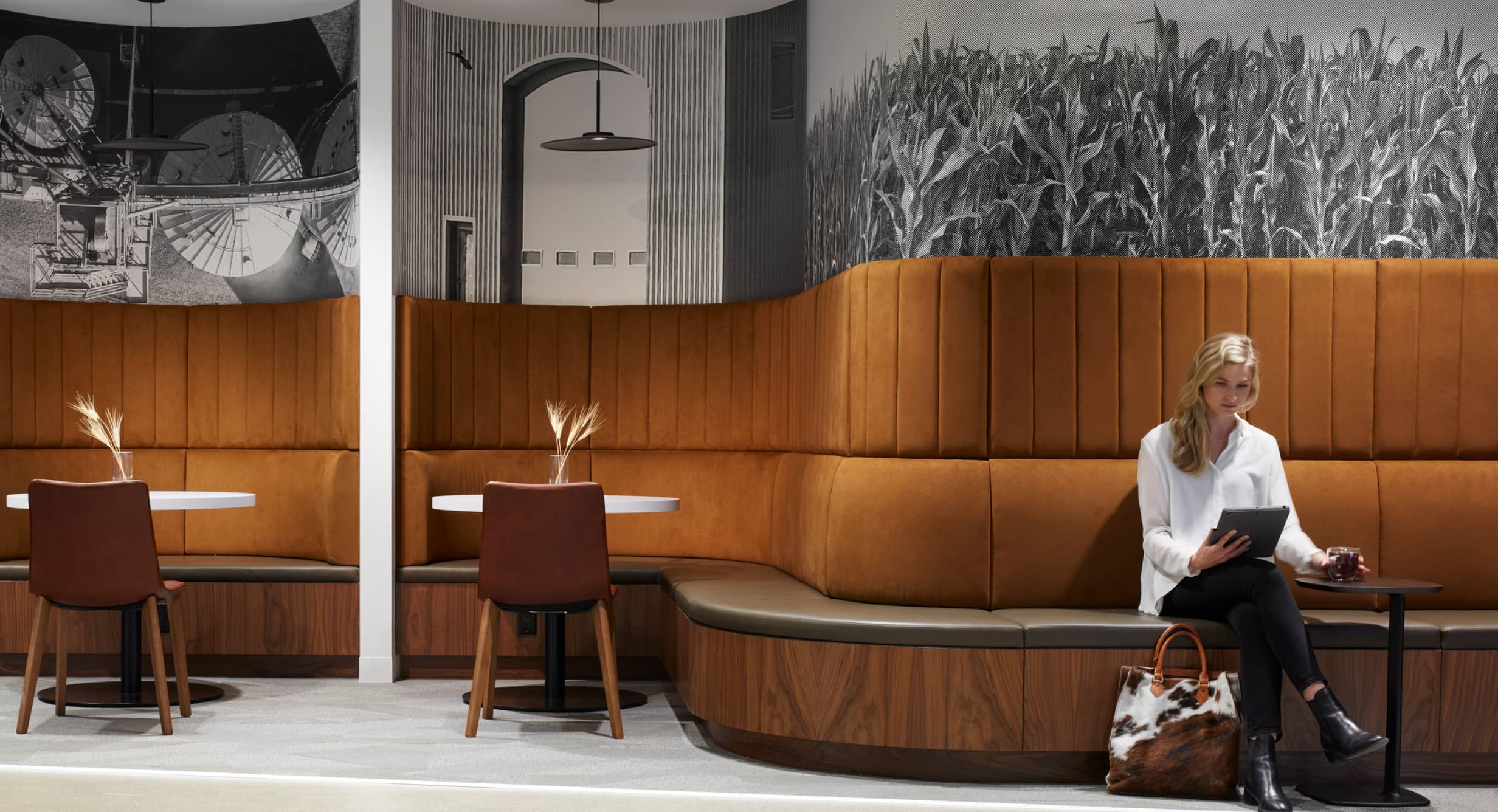
Unlocking Brain Health in Our Workplace: Findings from HKS Atlanta
- Susan Chung, PhD
- Evie Guo, PhD
- Julie Volosin
- Brandi Kmoch
Expressions like “time is of the essence” or “time is money,” reflect our deep connection between time and productivity. While time is undeniably valuable, it’s our brain health that underpins how effectively we use it.
Our HKS Atlanta team members recently endeavored to practice brain health together with guidance from our partners at the Center for BrainHealth® at the University of Texas at Dallas, who we first collaborated with in 2022 when HKS employees around the world participated in the study Creating a Brain Healthy Workplace.
Place, process, policy, and technology must work together to support our brain health, especially as we navigate challenges that may hinder peak performance at work. By applying the Center for BrainHealth®’s proven strategies and learnings from our firm-wide research, our Atlanta team explored how workplace design and behavior change can enhance brain health outcomes, and perhaps even maximize time and productivity.
During the course of six months, 85 HKS Atlanta embraced the 9-5-3 framework for better brain health — nine brain health strategies activated in a workplace designed with five brain healthy affordances while promoting three brain healthy habits — and examined behavioral changes. What we found has the power to influence how our team can improve our ability to work creatively and efficiently, and how we can be better designers of workplace environments in the future.
Busting Myths of Multitasking and Taking Breaks
Multitasking, or the act of performing multiple tasks simultaneously, has become a routine habit as we juggle various projects. However, research consistently tells us multitasking has detrimental effects such as chronic stress, a decline in fluid intelligence, the atrophy of brain regions dedicated to critical thinking, and increased likelihood of errors. We may get a false sense of productivity from multitasking, but science tells us we actually get more quality work done when we single-task.
Multitasking was one of the brain health challenges that Atlanta employees tackled. We introduced a team competition focused on single tasking to motivate behavioral change. Although the competition only lasted for a month, the office reported a consistent decline in multitasking frequency across the six-month study period – a 17.5% decrease compared to baseline.
Another myth of productivity is the idea that taking breaks hinders efficiency. In reality, research indicates that breaks may mitigate cognitive performance impairment, enhance alertness, and improve various measures of well-being. Our survey results from Atlanta demonstrate a significant positive correlation between the average number of brain breaks taken throughout the day and the average number of focused tasks employees completed per day. Breaks seem to regenerate the mental energy needed for completing focus tasks. We also found that when we have the mental energy for required tasks, we feel a sense of accomplishment – when we take a moment to be mindful of our needs, we experience the fruit of the return it yields.
Supportive Workplace Design and Culture
Maintaining peak brain health is an ongoing and collective effort that is hard to do by yourself. Brain health intersects with physical, social, and policy dimensions of the workplace. By adopting healthier behaviors alongside our colleagues, encouraging stronger institutional support through policy, promoting greater alignment between space and cognitive needs, and integrating support from technology, we’ll achieve measurable outcomes.
A brain healthy workplace requires an office designed with intent – creating space affordances specifically designed for the tasks they support best. From triangulating activity mapping, pulse surveys, and focus group data, we found that certain activities are best when clustered together and some when spread out. The most effective spaces for each workplace activity include different space types that offer different levels of privacy or openness. We have yet to test the effectiveness of these space types on performance outcomes but recognize that providing a variety of spaces can accommodate our different needs and preferences.

Our Atlanta office is composed of a diverse collective; we need each other to build and strengthen brain healthy habits. The efforts in Atlanta showed increased satisfaction in habit building – we like working on brain health together, not in silos. A brain healthy workplace includes collective efforts for cognitive restoration and community connection, and we recognize an on-going need for people to lead by example and contribute to building and maintaining a culture that successfully supports brain health. Over time, we anticipate that brain healthy habits will become more ingrained in our everyday practices and position us to deliver lasting benefits to our clients and communities.

